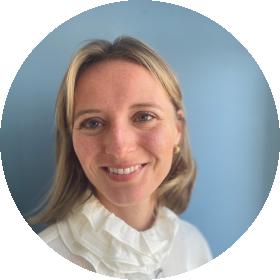
Results of the Stakeholders’ survey on a European collaborative cloud for cultural heritage
Between September 30, 2022 and November 4, 2022 an online survey was conducted by the European Commission aiming to gather the views of the cultural heritage stakeholders on the Commission’s initiative to establish a European Collaborative Cloud for Cultural Heritage. The EU survey collected feedback from more than 1000 museum professionals and Cultural Heritage Institutions on the needs and challenges in their digital transition and in-depth scientific collaboration via a digital platform. The survey results show that digital interaction is the highest priority among respondents' needs for tools, with a particular focus on tools for creating, sharing, and reusing interactive content on the cloud (43.3%), tools for AI-assisted metadata enrichment (37%), tools for advanced interaction with digital content on the cloud (36.4%), and tools for analysing, designing, and testing interactions with visitors (33.6%). The results are also analysed taking into account different groups identified in the demographic questions. The findings of the survey – as analysed in this report – will enable the Commission to provide targeted support to the cultural heritage sector to cope with the specific challenges and needs it faces in its digital transition. You can find the survey here.
Community kick-off event on 15 March: European Collaborative Cloud for Cultural Heritage
The European Collaborative Cloud for Cultural Heritage will be a one-of-a-kind digital infrastructure that will enable unparalleled transdisciplinary and large-scale collaboration between cultural heritage professionals across the EU through cutting-edge digital tools. With an envisaged budget of €110 million until 2025 from Horizon Europe dedicated to support its development and establishment, the Cloud will foster cooperation and co-creation among cultural, creative and technology sectors and will help safeguard European cultural treasures through a digital infrastructure. On 15 March, the European Commission organises an online event to kick-start the formation of a community of practice between cultural heritage professionals and demonstrate how the European Collaborative Cloud for Cultural Heritage can be useful in their everyday work. All professionals in the field of Cultural Heritage who wish to be involved in this effort are invited to participate in the event. More information and registration can be found here.
Information and Matchmaking event on 28 March: European Collaborative Cloud for Cultural Heritage
On 28 March, the European Commission organises an Information & Matchmaking Day on the ECCCH, which aims to foster partnerships among research institutions, cultural heritage entities and other organisations interested in participating in proposals for the ECCCH call of 2023. The morning session will feature a presentation of the call topics proposed for 2023 under the Work Program 2023-2024 of Horizon Europe Cluster 2. You will gain insights into this special funding opportunity and receive the latest information from the European Commission regarding expectations on applicants. A brokerage event will take place in the afternoon. This session aims at connecting prospective applicants and facilitate idea sharing. Please register here.
NEMO's Practical Guide for Digital Basic Cataloguing - 10 Principles
The Network of European Museum Organisations (NEMO) has published a Practical Guide for Digital Basic Cataloguing - 10 Principles. When adhering to the 10 principles, museums can be ensured that their digital information is optimised for use by both internal and external stakeholders. The report provides guidance on how to process and prepare already defined information for digital cataloguing. These recommendations are beneficial for museums of all types and sizes since they may be adjusted to match any organisation's staffing and financial capabilities. The Practical Guide for Digital Basic Cataloguing covers a variety of important topics ranging from automated data enhancement, multilingualism, provenance and digital sustainability.
Launch of the MuseIT project: interactive technologies for enhancing the inclusion of people with disabilities in cultural organisations
The MuseIT Project - Multisensory, User-centred, Shared cultural Experiences through Interactive Technologies has started. It will propose technologies that facilitate and widen access to cultural assets for people with disabilities and helps preserve and safeguard cultural heritage in an inclusive way. The project aims to co-design, develop, and co-evaluate a multisensory, user-centred platform for enriched engagement with cultural assets with inclusion and equal opportunity for all as core principles. The main end users of the project’s results will be people with disabilities and cultural organisations in Europe. The MuseIT consortium, led by the university of Borås (Sweden) comprises 9 partners from EU member countries and 2 associated partners, from the USA and the UK, is funded by the EU under the Horizon call.


